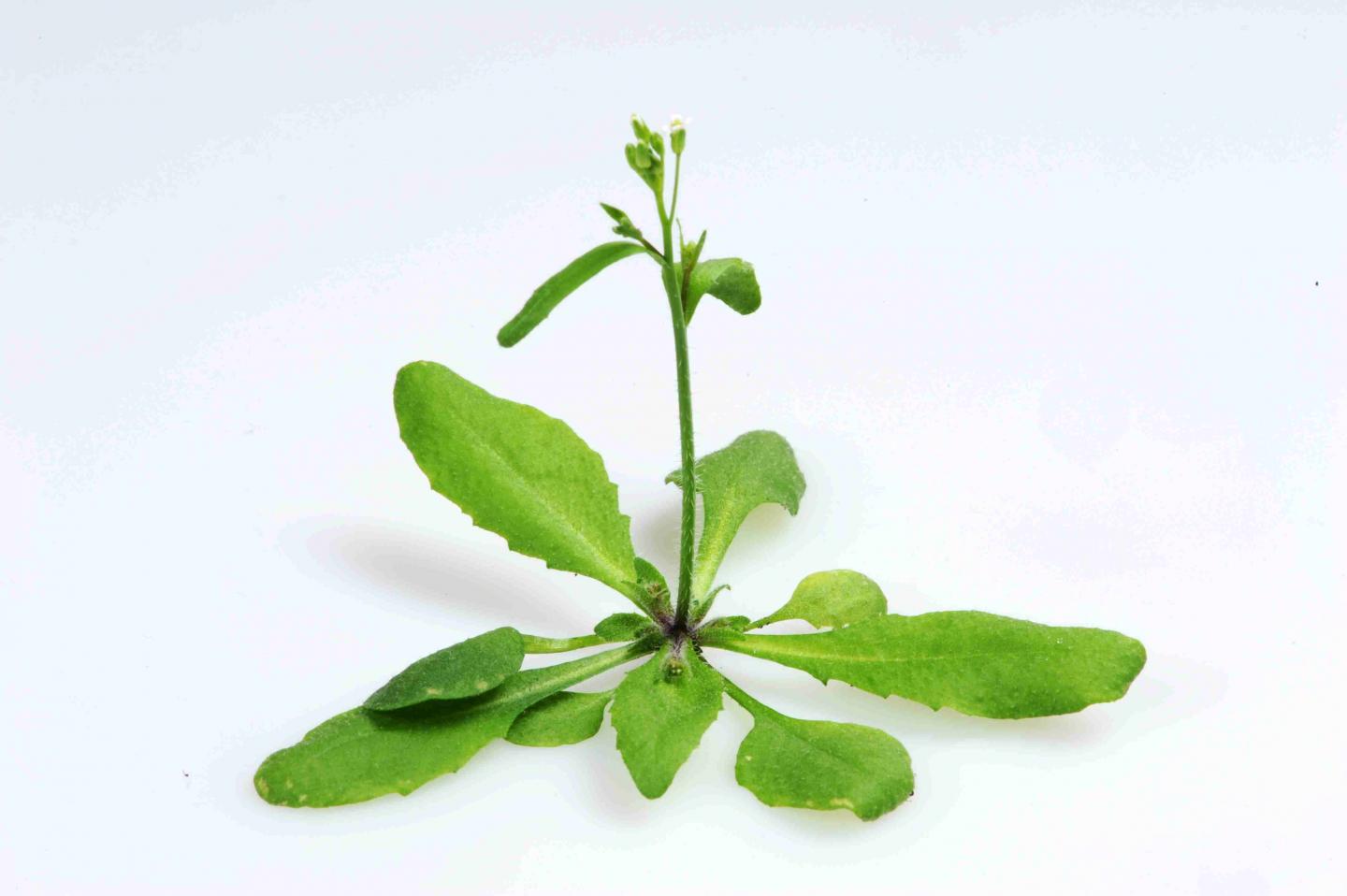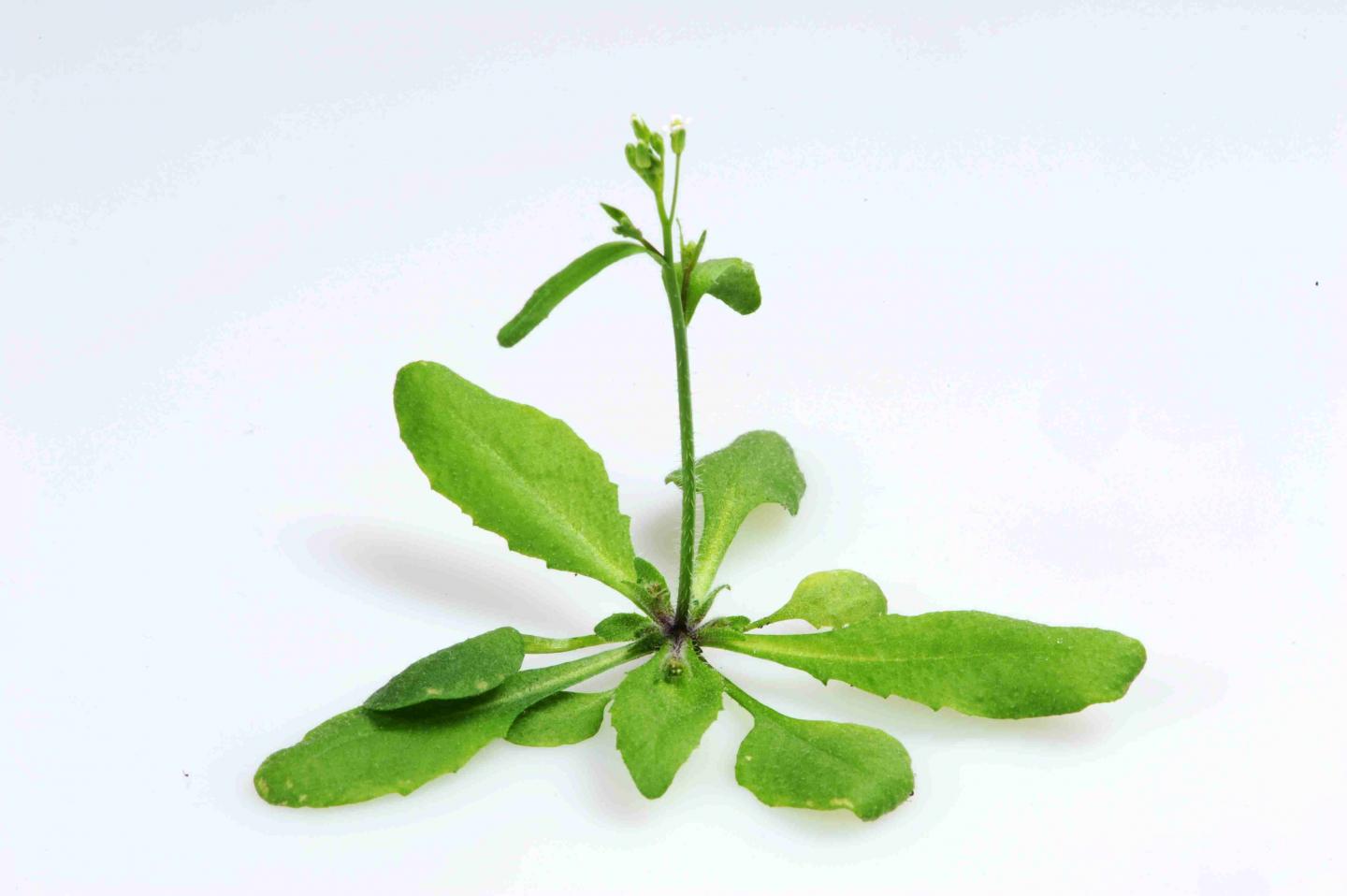
Credit: Eric Belfield
Researchers at the University of Oxford have discovered that a cellular mechanism preferentially protects plant genes from the damaging effects of mutation.
Whilst DNA sequence mutation is the fundamental fuel of species evolution, mutations in genes are often harmful. As a form of defence, organisms have evolved repair mechanisms to correct the DNA sequence following mutation. One of these mechanisms, is termed DNA mismatch repair (MMR). It corrects mutations that arise during the replication of the genome during cell division.
A new study, published in Genome Research, has shown for the first time that MMR is targeted to particular regions of the genome, and preferentially repairs genes.
The research was carried out in the Department of Plant Sciences, together with colleagues from Zhejiang University (China) and Lahore University of Management Studies (Pakistan).
Led by Oxford's Prof. Nicholas Harberd, the team looked at 9000 mutations accumulated in five generations of a MMR-deficient strain of the model plant species Arabidopsis thaliana, and compared them with mutations arising in an MMR-proficient strain.
The study has important implications for human health, and is particularly useful for understanding the changes that occur in cells during the development of the tumors that underlie cancers. MMR-deficiency predisposes cells to become tumorous, presumably because MMR-deficient cells lack the gene protection that reduces the risk of mutation in the genes that normally suppress tumor formation. The team have no plans to expand on these implications, but would welcome interest from anyone keen to follow up the study from a medical science perspective.
'As expected, the mutation rate in the MMR-deficient strain was massively higher than in the MMR-proficient strain', said Prof. Harberd. 'But we were surprised to see that whilst mutations are more or less randomly spread throughout the genome of the MMR-deficient strain, they are not randomly spread throughout the genome of the MMR-proficient strain.' In particular, genes, rather than non-genic regions of the genome, appeared to be preferentially protected from mutation in the MMR-proficient strain.
The paper finds that MMR preferentially repairs genes, rather than other regions of the genome. This finding significantly enhances our understanding of how organisms use MMR to reduce spontaneous mutation rates.
'Whilst genes are essential for the biology of organisms, the functions, if any, of the non-genic regions of the genome are less clear', said Prof. Harberd. 'It is therefore understandable that natural selection may have favored the relative targeting of MMR to genes rather than non-genic regions. The challenge now is to understand how that targeting works.'
###
Notes to editors:
The full paper citation is 'DNA mismatch repair preferentially protects genes from mutation' as featured in Genome Research, Written by Eric J. Belfield1,5, Zhong Jie Ding2,5, Fiona J.C. Jamieson1, Anne M. Visscher1,3, Shao Jian Zheng2, Aziz Mithani4 and Nicholas P. Harberd1
Web link: http://genome.cshlp.org/content/early/2017/12/11/gr.219303.116.abstract
For further information, please contact Lanisha Butterfield, Media Relations Manager on 01865 280531 or [email protected]
Image credit: Arabidopsis thaliana, the plant species used in this study' credit to Eric Belfield.
Media Contact
Lanisha Butterfield
[email protected]
01-865-280-531
@UniofOxford
http://www.ox.ac.uk/





